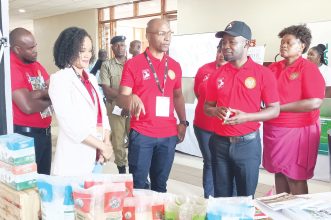Economic gender gap worsens
Women’s economic participation and opportunities participation has worsened over the past 15 years, the World Economic Forum (WEF) has said.
WEF 2021 Global Gender Gap Report indicates that Malawi is 75 steps down to 111 from 36 out of 156 economies.
During the review period, Malawi emerged 115 out of 156 economies in the 2021 Global Gender Gap Index, which uses four indicators: economic opportunity (111), political power (93), education (129) and health (1).

In 2006, Malawi was ranked 81 while in 2020, the country was ranked 116 out of the 156 economies.
However, although Malawi has tried to narrow the gender gap by moving a step up on the Global Gender Gap Index, from rank 116 to 117 out of out of 156 economies, over 80 percent of the gender gap has yet to be closed as only 15.6 percent to 17.5 percent of the of women make it to senior positions in the labour force.
This is far below the region’s 30 percent average.
Reads the report in part: “Additionally, there are very large divides within the region.
“The median level of women in senior roles is 33 percent, and while there are four countries [Burkina Faso, Botswana, Côte d’Ivoire and Togo] where there are almost as many women as men in senior positions, there are another three countries [Malawi, Gambia and Mali] where women are only 15.6 33 percent to 17.5 33 percent of the senior officials, which means that over 80 33 percent of the gender gap has yet to be closed.”
The report estimates that it will take an average of 135.6 years for women and men to reach parity on a range of factors worldwide, instead of the 99.5 years outlined in the 2020 report. Thirty six years marks the largest gain in one year since the report started in 2006.
WEF managing director Saadia Zahidi observed in a statement accompanying the report that gender-sensitive recovery strategies will be critical in making up ground lost during 2020 to prevent long-term scarring in the labour market.
She said Covid-19 pandemic has raised new barriers to building inclusive and prosperous economies and societies.
Said Zahidi: “Leaders have an unprecedented opportunity to build more resilient and gender-equal economies by investing in inclusive workplaces, creating more equitable care systems, advancing women’s rise to leadership positions, applying a gender lens to reskilling and redeployment and embedding gender parity into the future of work.
A joint study by United Nations Development Programme and United Nations Environment Programme (Undp-Unep) had put Malawi’s total cost of gender gap in the productivity output of women in the agriculture sector of at a staggering $110 million (about K85 billion) a year.
But by closing the gender gap, the county could increase its crop production by over 7.3 percent and thereby increasing agriculture gross domestic product (GDP) by $90 million (about K70 billion) UN data shows.





